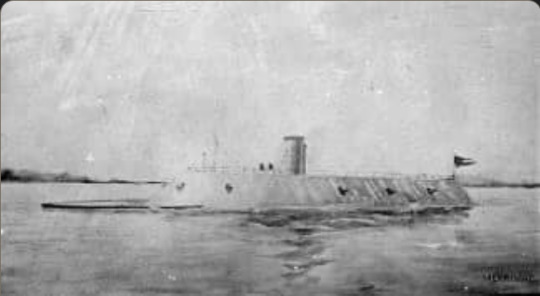#US civil war
Photo
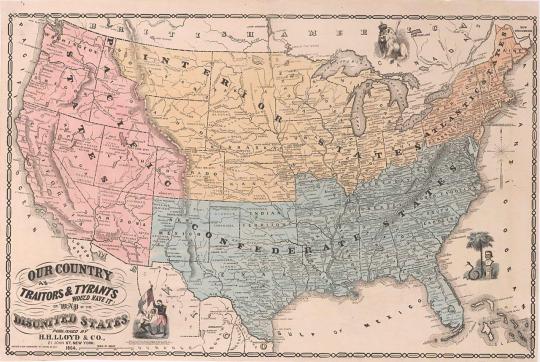
The “Disunited states of America” map from Civil war era.
137 notes
·
View notes
Text

#us politics#music#republicans#conservatives#gop#try that in a small town#jason aldean#President Ulysses S. Grant#american civil war#us civil war#civil war#us history
91 notes
·
View notes
Text
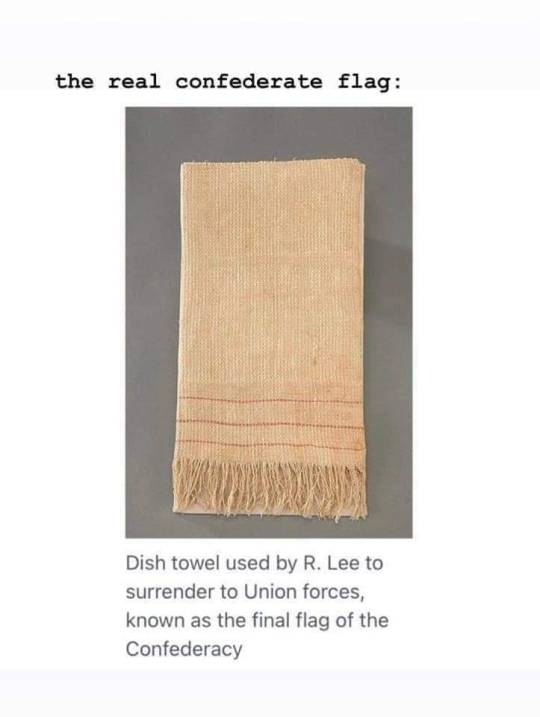
Happy Confederate Surrender Day to all who celebrate!!!
64 notes
·
View notes
Text
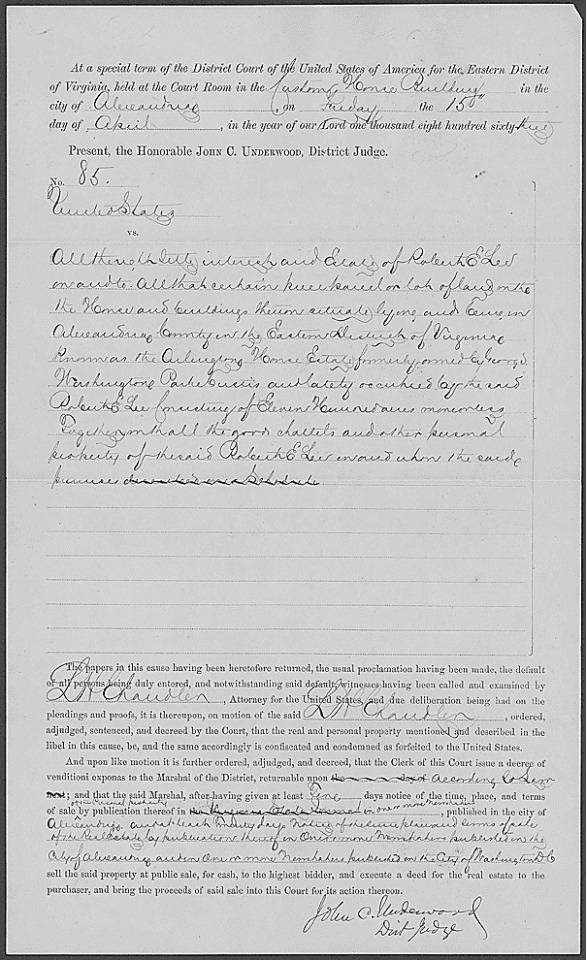
Condemnation Decree filed in U.S. v. All the Rights, Titles, of Robert E. Lee (Robert E. Lee Confiscation Case)
Record Group 21: Records of District Courts of the United StatesSeries: Confiscation Case FilesFile Unit: U.S. v. The Right, Title, Interest, and Estate of Robert E. Lee
[printed] At a special term of the District Court of the United States of America for the Eastern District of Virginia, held at the Court Room in the [handwritten] Customs House Building [typed] in the city of [handwritten] Alexandria [printed], on [handwritten] Friday the 15th day of April, [printed] in the year of our Lord one thousand eight hundred sixty three
[printed] Present, the Honorable John C. Underwood, District Judge.
[handwritten] No. 85
United States
vs.
All the rights titles interests and the Estate of Robert E Lee in and to All that certain piece parcel or lot of land and to the Home and buildings thereon situated lying and being in Alexandria County in the Eastern District of Virginia known as the Arlington House Estate formerly owned by George Washington Parke Custis and lately occupied by the said Robert E Lee Consisting of Eleven Hundred acres more or less Together with all the goods chattels and the personal property of the said Robert E Lee in and upon the said premises [illegible]
[printed] The papers in this cause having been heretofore returned, the usual proclamation having been made, the default of all persons being duly entered, and notwithstanding said default, witnesses having been called and examined by [handwritten] L H Chandler [printed] , Attorney for the United States, and due deliberation being had on the pleadings and proofs, it is thereupon, on motion of the said [handwritten] L H Chandler [printed] , ordered, adjudged, sentenced, and decreed by the Court, that the real and personal property mentioned and described in the libel in this cause, be, and the same accordingly is confiscated and condemned as forfeited to the United States.
[printed] And upon like motion it is further ordered, adjudged, and decreed, that the Clerk of this Court issue a decree of venditioni exponas to the Marshall of the District, returnable upon [handwritten] ascending [illegible word]; [typed] and that the said Marshal, after having given at least [handwritten- Tene?] [printed] days notice of the time, place, and terms of sale [carrot-handwritten in] of the personal property [printed] by publication thereof in [handwritten] the Virginia State District in one or more [illegible word] [printed] published in the city of [handwritten] Alexandriae. [illegible 3 words] dat. Notice of [illegible word] place and [illegible word] of sale of the Real Estate by [persecutions?] thereof in one or more [illegible 2 words] in the City of Alexandria and in one or more [illegible 2 words] in the City of Washington DC [printed] sell the said property at public sale, for cash, to the highest bidder, and execute a deed for the real estate to the purchaser, and bring the proceeds of said sale into this Court for its action thereon.
[handwritten signature] John C. Underwood
Dist Judge
36 notes
·
View notes
Text


Welcome back John brown
#mulch dog#john brown#history#us history#american civil war#us civil war#shitpost#John browns ghost if you can hear me please bless me with a good exam score thanks#xin art!!
24 notes
·
View notes
Text
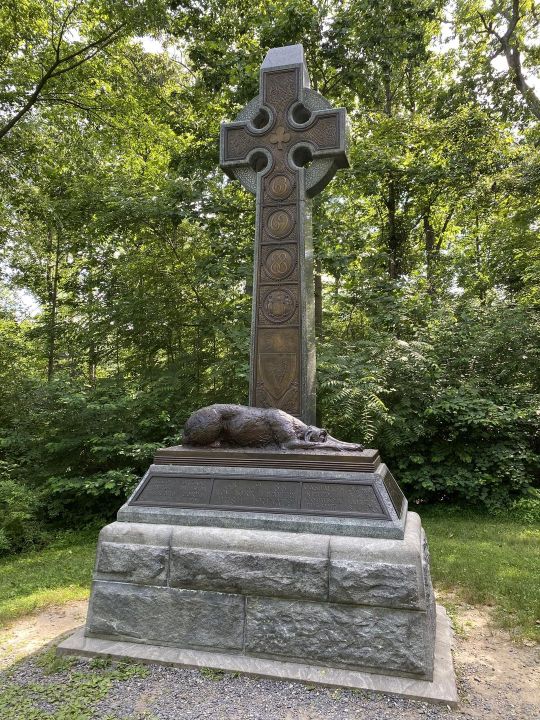
GETTYSBURG — Located inside the Rose Woods, the monument to the Irish Brigade was dedicated in 1888. Fighting in and around The Wheatfield on July 2, 1863, this famed fighting unit under the command of Colonel Patrick Kelly consisted of the 63rd, 69th, and 88th New York Infantry Regiments, along with the 28th Massachusetts and 116th Pennsylvania. The monument features a Celtic cross and a life sized Irish wolfhound.
53 notes
·
View notes
Note
could you elaborate on that bit about the 14th amendment, if you don't mind?
So I heard this from @necarion so he can probably fill in more details.
But my understanding is that after the US Civil War, Congress wanted to do a bunch of stuff to protect civil rights and kill off Jim Crow racism style laws. And the explicit purpose of the fourteenth and fifteenth amendments were to say that Congress could make those laws.
So the fourteenth amendment says
No State shall make or enforce any law which shall abridge the privileges or immunities of citizens of the United States; nor shall any State deprive any person of life, liberty, or property, without due process of law; nor deny to any person within its jurisdiction the equal protection of the laws.
...
The Congress shall have the power to enforce, by appropriate legislation, the provisions of this article.
And then the fifteenth says
Section 1. The right of citizens of the United States to vote shall not be denied or abridged by the United States or by any State on account of race, color, or previous condition of servitude—
Section 2. The Congress shall have the power to enforce this article by appropriate legislation.
And these are really explicit claims that Congress can protect civil rights and voting rights by passing laws.
But the Supreme Court was much more racist and southern conservative than Congress was. So when Congress actually passed those laws, the Supreme Court said they were overreaches and exceeded Congress's power under the Constitution. Despite them passing actual amendments to say "we have the power to pass these laws."
In the process, SCOTUS basically read the Privileges and Immunities Clause out of the Constitution entirely. Which is why in the 1960s the incorporation had to work through "substantive due process", which is another example "good policy through kinda bullshit reasoning". But they wouldn't have needed to do it that way if they hadn't sworn up and down that the actual clause intended to have that effect meant nothing.
45 notes
·
View notes
Text

Eastman Johnson (1824-1906)
"Dinah, Portrait of a Negress" (c. 1867)
Oil on board
Located in the Gibbes Museum of Art, Charleston, South Carolina, United States
In the Book of Genesis, Dinah was the seventh child and only daughter of Leah and Jacob, and one of the matriarchs of the Israelites.
In 19th-century America, "Dinah" became a generic name for an enslaved African woman. At the 1850 Woman's Rights Convention in New York, a speech by Sojourner Truth was reported on in the New York Herald, which used the name "Dinah" to symbolize black womanhood as represented by Truth:
In a convention where sex and color are mingled together in the common rights of humanity, Dinah, and Burleigh, and Lucretia, and Frederick Douglas [sic], are all spiritually of one color and one sex, and all on a perfect footing of reciprocity. Most assuredly, Dinah was well posted up on the rights of woman, and with something of the ardor and the odor of her native Africa, she contended for her right to vote, to hold office, to practice medicine and the law, and to wear the breeches with the best white man that walks upon God's earth.
Lizzie McCloud, a slave on a Tennessee plantation during the American Civil War, recalled that Union soldiers called all enslaved women "Dinah." Describing her fear when the Union army arrived, she said: "We was so scared we run under the house and the Yankees called 'Come out Dinah' (didn't call none of us anything but Dinah). They said 'Dinah, we're fightin' to free you and get you out from under bondage.'"
The name Dinah was subsequently used for dolls and other images of black women.
#paintings#art#artwork#painting#female portrait#eastman johnson#oil on board#fine art#gibbes museum of art#art gallery#american artist#portrait of a woman#black woman#history#slavery#us civil war#african american#clothing#clothes#1860s#mid 1800s#mid 19th century
93 notes
·
View notes
Text
On This Day In History
September 1st, 1864: The Confederate Army evacuated Atlanta, Georgia, ending a four-month siege by Union General William Tecumseh Sherman. This was a major victory for the North, helping get Lincoln re-elected and setting the stage for Sherman's March to the Sea, later that same year.
49 notes
·
View notes
Note
If Sherman fought mostly poor generals, was he then a mediocre general who got lucky, or was he a good general, and whether he was good or bad at being a general is based on other factors.
Sherman was a great general, make no mistake. He was impressively modern-minded and excelled at maneuver and bombardment. He understood logistics, always the most underappreciated of the military sciences. He sought to increase the range of artillery and took steps to do so. He integrated his arms incredibly well. When Johnston fortified his defenses, Sherman moved to flank and force a withdrawal. When John Bell Hood took command, Sherman expertly baited him into a trap. When he marched in Georgia, he deftly managed a two-pronged army when many contemporaries struggled to move large masses of men. He could read a battlefield, make adjustments, and understood strategy. He made mistakes, sure, so did Grant and Meade. But he was one of the first "modern" American generals, who understood war as an industrial process, something that would be presaged quite well in the later Russo-Japanese War and World War I.
Being a great general is more than having a worthy opponent, it's understanding war, it's knowing how to achieve victory and working to achieve that on the field, in the theater, in the campaign, and in the wider war itself.
Thanks for the question, Anon.
SomethingLikeALawyer, Hand of the King
37 notes
·
View notes
Photo
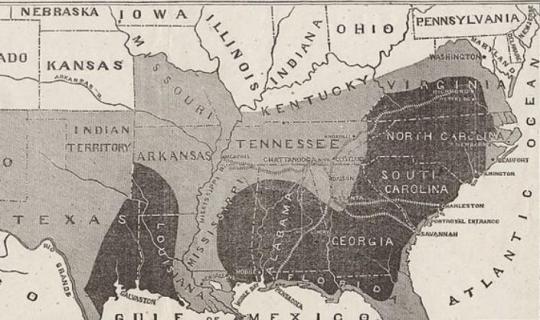
Map posted by the National Union Executive Committee for Lincoln's reelection campaign showing the stage of the war by 1864 showing Confederate territorial control. The CSA had lost KY, TN and most of AR by then. With each state's respective Confederate state governments being driven out of their st
110 notes
·
View notes
Text

#us politics#us history#us civil war#american civil war#fuck confederate sympathizers#fuck the confederacy#fuck the confederates#traitors#confederate states of america#a confederacy of dunces#memes#shitpost
21 notes
·
View notes
Text

Veterans of 4 different wars from the same town of Geary, Oklahoma, 1940’s. From top left to bottom left, clockwise:
Pearl Perry “Jack” Johnson (1923-1997) born in Davis, Oklahoma. WW2 veteran. Registered for the draft in June 1942.
Hilyeard H “Red” Young (1895-1965). Born in Texas, WW1 veteran, owned a barber shop in 1940.
Andrew Jackson Everist, Sr. (1849-1945), born in Iowa, served in the Illinois 57th Regiment for the Union in 1864-1865 at the age of 15-16. The medal he’s wearing is the Gettysburg 75th Reunion Veteran’s Medal, but it was given to both Union and Confederate vets.
Oscar P Ruth (1872-1961). Born in Illinois, Spanish-American War veteran. Self-employed electrician in 1940.
13 notes
·
View notes
Text

Nomination of Ulysses S. Grant as Lieutenant General of the Army
Record Group 46: Records of the U.S. SenateSeries: Anson McCook Collection of Presidential Signatures
Executive Mansion, Washington, February 28, 1864 To the Senate of the United States I nominate Ulysses S. Grant, now a Major General in the Military service, to be Lieutenant General in the Army of the United States. Abraham Lincoln
32 notes
·
View notes
Text
I saw this comic and was instantly catapulted to the beginning of my great grandfather's memoirs. To wit:
About the time Grandfather left the farm for Wyoming, his sons Robert and Hugh left to homestead in Saskatchewan. Alex, the youngest son, had already homesteaded in Manitoba, and the other brother had left for the Civil War.
This would be a good place to relate an incident told to me by Father. When the brother left for the U.S.A., Father walked with him to Sarnia to see him across the St. Clair River on the ice to Port Huron. The river was frozen except for a ten foot gap at the centre. The brother said goodbye, took a running jump and landed on the other side. Father then threw his baggage, a gunny sack of duffle, across the water.
They waved, and Father watched him disappear on the other side. Nothing was heard of him after that.
He says a few paragraphs earlier:
The next eldest, whose name has slipped away from me, enlisted in the American Civil War and was never heard of again.
#canadian history#US civil war#memoirs#personal#it's got me feeling some kind of way#I figure this was around early 1862#also: based on the memoirs and some research he went to fight for the North
15 notes
·
View notes
